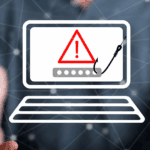In today’s digital landscape, businesses collect extensive customer data to enhance user experiences and process transactions efficiently. A data breach occurs when unauthorized individuals access or disclose this sensitive information. These breaches can result from simple human errors or sophisticated cyber-attacks, compromising both company and customer data.
Data breaches can stem from various sources. Sometimes, they result from employees neglecting security protocols or making mistakes. Cybercriminals also use tactics like phishing, social engineering, and malware to infiltrate systems. Regardless of the method, the consequence is the unauthorized exposure of confidential information, posing severe risks to businesses.
Why Small Businesses Are Vulnerable
A widespread misconception is that cybercriminals primarily target large corporations due to their extensive resources and customer databases. However, small businesses are increasingly becoming prime targets. This is mainly because they often lack the robust security infrastructure of larger companies, making them easier to exploit.
The Verizon State of Small Business Survey from January 2024 indicates that 51% of small businesses lack adequate data security measures, such as proper training, tools, or prior experience with cyberattacks. This vulnerability makes them particularly attractive to hackers who can exploit these weaknesses more easily than those in well-protected larger corporations.
The Impact of Data Breaches on Small Businesses
For small businesses, the financial burden of responding to a data breach can be overwhelming. According to Fox Business, investigative forensics alone can cost between $10,000 and $100,000. Smaller companies often lack the financial reserves to manage these costs effectively and may need to hire external consultants, attorneys, and crisis management teams to handle the situation. Cybercrime Magazine reports that 60% of small businesses close within six months of experiencing a cyberattack, highlighting the severe financial strain such incidents can impose.
Loss of Customer Trust and Revenue
A data breach can severely damage customer trust, especially when personal information like names, ages, and financial details are compromised. Businesses must notify customers about the breach and often provide services like free credit monitoring to mitigate damage. Despite these efforts, the loss of trust can lead to increased customer turnover and revenue loss as customers may switch to competitors perceived to be more secure.
Reputation Damage Among Stakeholders
The fallout from a data breach isn’t limited to customers; employees and potential job applicants can also feel the impact. The disclosure of employee data can lead to dissatisfaction and attrition. Furthermore, the company’s credit rating may suffer, resulting in negative media coverage, higher interest rates from investors, and increased difficulty in securing future financing. The cumulative effect of these issues can significantly tarnish a company’s reputation, making recovery a prolonged challenge.
Proactive Measures for Protection
Given the severe consequences of data breaches, proactive measures are critical for small businesses. Implementing robust cybersecurity practices, such as firewalls, encryption, and intrusion detection systems, can create a first line of defense against potential threats. Regularly updating software and systems to patch vulnerabilities is equally important.
Employee training is another crucial element of cybersecurity. Ensuring that all staff members understand the importance of data security and are trained to recognize potential threats, such as phishing emails, can significantly reduce the likelihood of a breach. Regular drills and refresher courses can help keep security practices at the forefront of employees’ minds, fostering a culture of vigilance and responsibility.
In conclusion, while data breaches pose a significant threat to small businesses, understanding their nature and impact can help in taking effective preventative measures. By adopting comprehensive cybersecurity practices and investing in employee training, small businesses can better protect themselves against these potentially devastating incidents.





